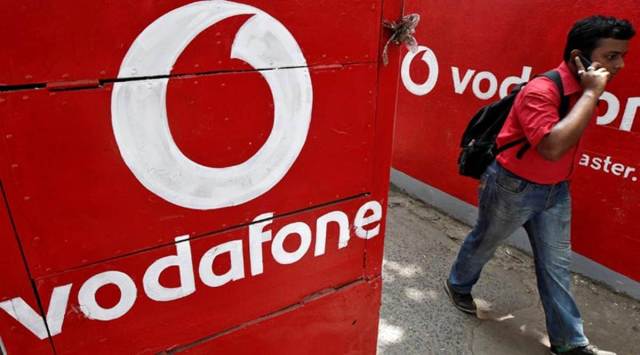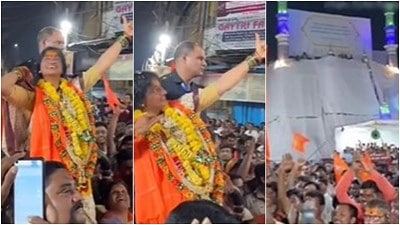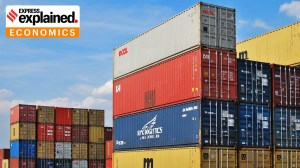- India
- International
Rs 22,100-crore tax: Hague court backs Vodafone, govt eyes legal options
The court has also asked the Indian government to reimburse 4.3 million pounds to Vodafone Group for legal representation, assistance, and for fees paid by the company to the arbitration court.
 Vodafone Idea warns users against KYC frauds: All you need to know
Vodafone Idea warns users against KYC frauds: All you need to knowIN A relief for Vodafone Group Plc, the Permanent Court of Arbitration at The Hague ruled Friday that India’s retrospective demand of Rs 22,100 crore as capital gains and withholding tax imposed on the telco for a 2007 deal was “in breach of the guarantee of fair and equitable treatment” that the company was entitled for its investments in the country’s mobile telephone business.
“The respondent’s (India’s) conduct in respect of the imposition on the claimant (Vodafone Group) of an asserted liability to tax notwithstanding the Supreme Court judgment is in breach of the guarantee of fair and equitable treatment,” the court said in its judgment.
It also ruled that the Indian government must reimburse 4.3 million pounds to Vodafone Group for costs incurred on legal representation and assistance as well as for fees paid by the company to the arbitration court.
Following the ruling, Vodafone Group said that “the tribunal held that any attempt by India to enforce the tax demand would be a violation of India’s international law obligations”. “This was a unanimous decision, including India’s appointed arbitrator Mr Rodrigo Oreamuno,” a company spokesperson said.
Also Read | Explained Ideas: What can the government do to revive India’s telecom industry?

The Finance Ministry said it would study the order “and all its aspects carefully in consultation” with its counsel. “After such consultations, the government will consider all options and take a decision on further course of action including legal remedies before appropriate fora,” it said in a statement.
However, Ministry sources said that since Vodafone had not paid the initial tax demand of Rs 7,900 crore and interest and penalty on it, the question of India paying back Rs 22,100 crore did not arise. Further, they said, the tribunal has not accepted the claim of Vodafone for award of damages.
In such a scenario, sources said, the Centre’s liability — if it decides not to approach the Singapore International Arbitration Centre to appeal against Friday’s ruling — is estimated to be about Rs 85 crore. This includes Rs 45 crore towards the tax collected so far and Rs 40 crore towards costs charged by the tribunal, they said.
In its ruling, The Hague court said that since it was now established that India had breached the terms of the agreement, it must now stop efforts to recover the said taxes from Vodafone. Failure to comply with directions of the court would mean that India would “engage its international responsibility”, the court said.
Setback for policy
The ruling in favour of Vodafone signals a setback for the country's retrospective taxation policies. It also raises the possibility of other cases under arbitration being decided on similar lines.
The Vodafone Group retrospective taxation case dates back to 2007 when the UPA government had raised an initial tax demand of Rs 7,990 crore in capital gains and withholding tax against Vodafone Group when the company had acquired 67 per cent of stake in Hutchison Whampoa for $11 billion.
India had then said that Vodafone Group ought to have taken into account the capital gains and withholding taxes and was, therefore, liable to pay Rs 22,100 crore including interest and penalties.
The company had, on the other hand, said that it would not have to pay the taxes since India and the Netherlands had signed a bilateral investment treaty (BIT) in 1995, which exempted such investments from taxation.
However, the Income Tax department continued to send demand and recovery notices to the company, which challenged them first in the Bombay High Court and later in the Supreme Court. In 2012, the Supreme Court ruled that the Vodafone Group’s interpretation of the Income Tax Act of 1961 was correct and that it did not have to pay any taxes for the stake buy.
In the same year, the then Finance Minister, the late Pranab Mukherjee, circumvented the top court’s ruling by proposing an amendment to the Finance Act and thereby giving the Income Tax department the power to retrospectively tax such deals. The Act was passed by the Parliament in the same year and the onus to pay the taxes fell back on Vodafone.
Despite threats of its assets in India being seized, the British telecom giant never paid this tax. In 2014, Vodafone Group initiated arbitration against India at the Permanent Court of Arbitration in The Hague under Article 9 of the treaty signed by Indian and the Netherlands.
Article 9 says that any dispute between “an investor of one contracting party and the other contracting party in connection with an investment in the territory of the other contracting party” shall as far as possible be settled amicably through negotiations.
The amendment to enable the I-T department to retrospectively raise tax demands on deals done in the past had foreign investors up in arms against the legislation, with many calling it “regressive”.
Friday’s ruling is unlikely to have any impact on Vodafone Idea (Vi), the British telecom company’s Indian joint-venture. Shares of Vi, however, jumped 14 per cent following reports of the ruling and closed at Rs 10.36, 13.6 per cent higher than the previous day’s closing.
Apr 18: Latest News
- 01
- 02
- 03
- 04
- 05






































